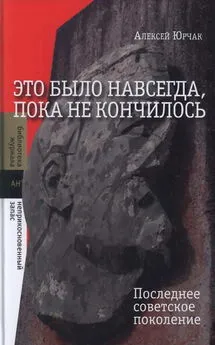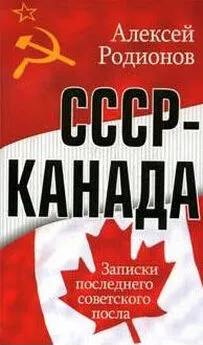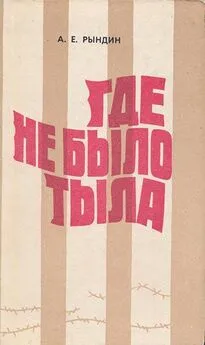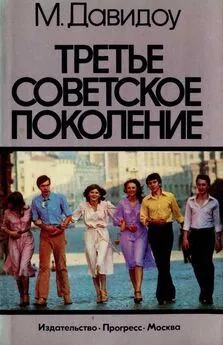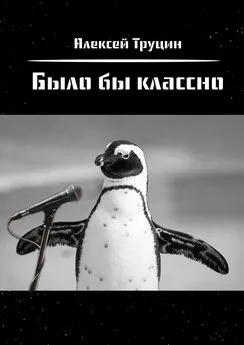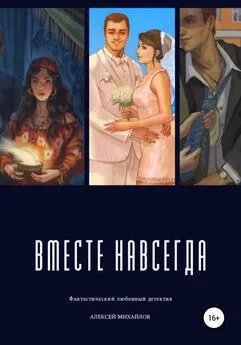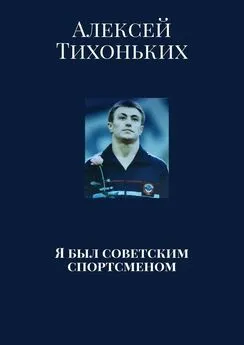Алексей Юрчак - Это было навсегда, пока не кончилось. Последнее советское поколение
- Название:Это было навсегда, пока не кончилось. Последнее советское поколение
- Автор:
- Жанр:
- Издательство:Новое литературное обозрение
- Год:2014
- Город:М.
- ISBN:978-5-444-80190-1
- Рейтинг:
- Избранное:Добавить в избранное
-
Отзывы:
-
Ваша оценка:
Алексей Юрчак - Это было навсегда, пока не кончилось. Последнее советское поколение краткое содержание
Для советских людей обвал социалистической системы стал одновременно абсолютной неожиданностью и чем-то вполне закономерным. Это драматическое событие обнажило необычный парадокс; несмотря на то, что большинство людей воспринимало советскую систему как вечную и неизменную, они в принципе были всегда готовы к ее распаду. В книге профессора Калифорнийского университета в Беркли Алексея Юрчака система «позднего социализма» (середина 1950-х — середина 1980-х годов) анализируется в перспективе этого парадокса. Образ позднего социализма, возникающий в книге, в корне отличается от привычных стереотипов, согласно которым советскую реальность можно свести к описанию, основанному на простых противопоставлениях: официальная / неофициальная культура, тоталитарный язык / свободный язык, политическое подавление / гражданское сопротивление, публичная ложь / скрытая правда.
Это было навсегда, пока не кончилось. Последнее советское поколение - читать онлайн бесплатно ознакомительный отрывок
Интервал:
Закладка:
Guerman M. 1993a. Mitki: Paintings, Destiny Mythology // Mitki: The Retrospective Exhibition 10 Years of the Movement. St. Petersburg: State Russian Museum (http://www.kulichki.com/mitki/museum/zhivo. html).
Guerman M. 1993b. New Trends in the Mitki Speech Culture // Mitki: The Retrospective Exhibition 10 Years of the Movement. St. Petersburg: State Russian Museum (http://www.kulichki.com/mitki/themitki/newtrends/html).
Guilhaumou J. 1989. La Langue Politique et la Revolution Francaise: de 1'Even-ement la Raison Linguistique. Paris: Meridiens Klincksieck.
Gupta A. 1995. Blurred Boundaries: The Discourse of Corruption, the Culture of Politics, and the Imagined State // American Ethnologist. № 22 (2). P. 375–376.
Habermas J. 1991. The Structural Transformation of the Public Sphere: An Inquiry into a Category of Bourgeois Society. Cambridge, MA: MIT Press.
Hall S. 1988. The Toad in the Garden: Thatcherism among the Theorists // Marxism and the Interpretation of Culture / C. Nelson, L. Grossberg (eds.). Urbana: University of Illinois Press. P. 35–57.
Hanks W.E. 2000. Intertexts: Writings on Language, Utterance, and Context. Lanham, MD: Rowman and Littlefield.
Hanson S. 1997. Time and Revolution: Marxism and the Design of Soviet Institutions. Chapel Hill: University of North Carolina Press.
Haraway D. 1991. Simians, Cyborgs, and Women: The Reinvention of Nature. New York: Routledge,
Havel V. 1986. The Power of the Powerless // Living in Truth. London: Faber and Faber.
Havel V. 1993. The Post-Communist Nightmare // New York Review of Books. №40(10). P. 8–10.
Hebdige D. 1979. Subculture: The Meaning of Style. Routledge.
Hellbeck J. 2009. Revolution on My Mind: Writing a Diary Under Stalin. Harvard University Press.
Hill J., Mannheim B. 1992. Language and World View // Annual Review of Anthropology. № 21. P. 381–406.
Hillings V.L. 1999. Komar and Melamid's Dialogue with (Art) History // Art Journal 58. №4. Winter. P. 48–61.
Hirschkop K. 1997. Bakhtin, Philosopher and Sociologist // Face to Face: Bakhtin in Russia and the West / C. Adlam (ed.). Sheffield: Academic Press. P. 54–67.
Hodge R., Kress G. 1988. Social Semiotics. Ithaca, NY: Cornell University Press.
Hollywood A. 2002. Performativity, Citationality, Ritualization // History of Religions. № 42 (2). P. 93–115.
Holquist M. 1990. Dialogism: Bakhtin and his World. London: Rout-ledge.
Hough J.F. 1979. How the Soviet Union Is Governed. Cambridge, MA: Harvard University Press.
Humphrey C. 1983. Karl Marx Collective: Economy, Society, and Religion in a Siberian Collective Farm. Cambridge: Cambridge University Press.
Humphrey С. 1989. «Janus-Faced Signs» — the Political Language of a Soviet Minority Before Glasnost' // Social Anthropology and the Politics of Language / R. Grillo (ed.). New York: Routledge. P. 145–175.
Humphrey С 1994. Remembering an «Enemy»: The Bogd Khann in Twentieth-Century Mongolia // Memory, History and Opposition under State Socialism / R. Watson (ed.). Santa Fe, NM: School of American Research Press. P. 21–44.
Humphrey С. 1995. Creating a Culture of Disillusionment // Worlds Apart: Modernity through the Prism of the Local / D. Miller (ed.). New York: Routledge. P. 43–68.
Humphrey С. 2001. Marx Went Away But Karl Stayed Behind. Updated edition of Karl Marx Collective: Economy, Society and Religion in a Siberian Collective Farm. Ann Arbor: University of Michigan Press.
Humphrey С. 2002а. Cosmopolitanism and Kosmopolitizm. Paper presented at the Annual Meeting of the American Anthropological Association. New Orleans, November.
Humphrey С. 2002b. The Unmaking of Soviet Life: Everyday Economies after Socialism. Ithaca, NY: Cornell University Press.
Hunter I. 1999. Zaum and Sun: The «First Futurist Opera» Revisited // Central Europe Review. Vol. 1. № 3. July.
Iampolsky M. 1995. Death in Cinema // Re-Entering the Sign: Articulating New Russian Culture / E.E. Berry, A. Miller-Pogacar (eds.). Ann Arbor: University of Michigan Press. P. 270–288. Impossible Histories: Historic Avant-Gardes, Neo-Avant-Gardes, and Post-Avant-Gardes in Yugoslavia, 1918–1991. 2003 / D. Djurie, M. Suvakovic (eds.). Cambridge, MA: MIT Press.
Inke A., Sasse S. 2006. Subversive Affirmation. On Mimesis as Strategy of Resistance. Editorial // Maska. Ljubljana. Spring.
Jakobson R. 1960. Closing Statement: Linguistics and Poetics // Style in Language / T.A. Sebeok (ed.). New York: Wiley. P. 350–377.
Jameson F. 1972. In die Prison House of Language: A Critical Account of Structuralism and Russian Formalism. Princeton University Press.
Jameson F. 1992. Postmodernism or the Cultural Logic of Late Capitalism. Durham, NC: Duke University Press.
Joravsky D. 1970. The Lysenko Affair. Cambridge, MA: Harvard University Press.
Jowitt К. 1993. New World Disorder: The Leninist Extinction. Berkeley: University of California Press.
Kabakov I. 1995. Interview // Soviet Dissident Artists: Interviews after Perestroika / R. Baigell, M. Baigell (eds.). New Brunswick, NJ: Rutgers University Press.
Kabakov I. 1995. Uber die «Totale» Installation / On the «Total» Installation. Stuttgart: Cantz.
Kabakov I., Tupitsyn M., Tupitsyn V. 1999. About Installation // Art Journal 58. № 4. Winter. P. 62–73.
Kant I. 1998. Critique of Pure Reason / Trans., ed. P. Guyer, AW. Wood. Cambridge: Cambridge University Press.
Kantorowicz E. 1997 [1957]. The King's Two Bodies: A Study in Medieval Political Theology. Princeton University Press.
Kharkhordin O. 1999. The Collective and the Individual in Russia: A Study of Practices. Berkeley: University of California Press.
Khlebnikov V. 1987. Letters and Theoretical Writings. Vol. 1 of Collected Works of Velimir Khlebnikov / R. Vroon, Ch. Douglas (eds.). Cambridge, MA: Harvard University Press.
Kornai J. 1980. Economics of Shortage. Amsterdam: North-Holland Publishing.
Kotkin S. 1995. Magnetic Mountain: Stalinism as a Civilization. Berkeley: University of California Press.
Kristeva J. 1986. Word, Dialogue and Novel // The Kristeva Reader / T. Moi (ed.). Oxford: Basil Blackwell.
Kruchenykh A. 1988a. New Ways of the Word. In Russian Futurism through its manifestoes 1912–1928 / A. Lawton, H. Eagle (eds.). Ithaca, NY: Cornell University Press.
Kruchenykh A. 1988b. Declaration of Transrational Language. In Russian Futurism through its Manifestoes 1912–1928 / A. Lawton, H. Eagle (eds.). Ithaca, NY: Cornell University Press.
Lacan J. 1988. The Seminar of Jacques Lacan // Book 3. The Psychoses, 1955–1956 / J.-A. Miller (ed.). New York: Norton.
Laibach. 1983. Ten Items of the Covenant // Nova Revija. Slovene Review for Cultural and Political Issues. № 13/14.
Lakoff A. 2005. The simulation of madness: Buenos Aires, 1903 // Critical Inquiry. №31.
Lampland M. 1995. The Object of Labor: Commodification in Socialist Hungary. Chicago: University of Chicago Press.
Lane С. 1981. The Rites of Rulers: Ritual in Industrial Society: The Soviet Case. Cambridge: Cambridge University Press. Late Soviet Culture: From Perestroika to Novostroika. 1993 / Th. Lahusen, G. Kuperman (eds.). Durham, NC: Duke University Press.
Ledeneva A. 1998. Blat: Russian Economy of Favours. Cambridge: Cambridge University Press.
Lee A. 1981. Russian Journal. New York: Random House.
Lefort С 1986. The Political Forms of Modern Society: Bureaucracy, Democracy, Totalitarianism. Cambridge, MA: MIT Press.
Lemon A. 1998. «Your Eyes are Green Like Dollars»: Counterfeit Cash, National Substance, and Currency Apartheid in 1990s Russia // Cultural Anthropology. №13(1). P. 22–55.
Levinson S. 1983. Pragmatics. New York: Cambridge University Press.
Lmke U., Dundes A. 1988. More on Auschwitz Jokes // Folklore. Vol. 99. № 1.
Luhmann N. 1998. Contingency as Defining Attribute // Observations on Modernity. Stanford, CA: Stanford University Press. P. 45.
Luk'janlenko P. 1990. Газета «Аргументы и факты» в период гласности // Revue des etudes slaves. Vol. 62. № 62–63. P. 607–613.
Mahmood S. 2001. Feminist Theory, Embodiment, and the Docile Agent: Some Reflections on the Egyptian Islamic Revival // Cultural Anthropology. № 16 (2). P. 202–236.
Mann H. 1980. The Magic Mountain / Trans. H.T. Lowe-Porter. New York: Vintage.
Mannheim K. 1952. Essays on the Sociology of Knowledge. London: Routledge. Mapping Ideology. 1994 / S. Žižek (ed.) London: Verso.
Marcus G. 1990. Lipstick Traces: A Secret History of the Twentieth Century. Cambridge, MA: Harvard University Press. Mass Culture in Soviet Russia: Tales, Poems, Songs, Movies, Plays, and Folklore, 1917–1953. 1995 /R. Stites, J. von Geldern (eds.). Bloomington: Indiana University Press.
Massey D. 1994. Space, Place and Gender. University of Minnesota Press.
Mbembe A. 1992. The Banality of Power and the Aesthetic of Vulgarity in the Postcolony // Public Culture. Vol. 4. № 2. Spring. P. 1–30.
Mbembe A. 2001. On the Postcolony. Berkeley: University of California Press.
Mc
Mkbael P. 2005a. «After All, You're a Rock and Roll Star (At Least That's What They Say)»: Roksi and the Creation of the Soviet Rock Musician // Slavonic and East European Review. № 83 (4).
McMkbael P. 2005b. The Making of a Soviet Rock Star, Leningrad, 1972–1987. PhD diss. University of Cambridge. Forthcoming.
Metzl J.E 1997. Rwandan Genocide and the International Law of Radio Jamming // American Journal of International Law. Vol. 91. № 4. October.
Mertz E. 1996. Recontextualization as Socialization: Text and Pragmatics in the Law School Classroom // Natural Histories of Discourse / M. Silverstein, G. Urban- (eds.). Chicago: University of Chicago Press. P. 229–249.
Mitchell T. 1990. Everyday Metaphors of Power // Theory and Society. № 19. P. 545–577.
Monroe A. 2005. Interrogation Machine: Laibach and NSK. Cambridge, MA: MIT Press.
Morris R. 1995. All Made Up: Performance Theory and the New Anthropology of Sex and Gender // Annual Review of Anthropology. № 24. P. 567–592.
Munting R. 1984. Lend-Lease and the Soviet War Effort // Journal of Contemporary History. №19. P. 495–510.
Nadkarni M., Shevchenko O. 2004. The Politics of Nostalgia: A Case for Comparative Analysis of Postsocialist Practices // Ab-Imperio. № 2.
Nafus D. 2003a. Time, Sociability, and Postsocialism. PhD diss. Sidney Sussex College, Cambridge University.
Nafus D. 2003b. The Aesthetics of the Internet in St. Petersburg: Why Metaphor Matters // The Communication Review. № 6. P. 185–212. Nation and Narration. 1990 / H. Bhabha (ed.). London: Routledge.
Navaro-Yashin Y. 2002. Faces of the State: Secularism and Public Life in Turkey. Princeton, NJ: Princeton University Press. Necrorealism: Contexts, History, Interpretations. 2001 / S. Graham (ed.). Pittsburg: Russian Film Symposium.
Читать дальшеИнтервал:
Закладка:
